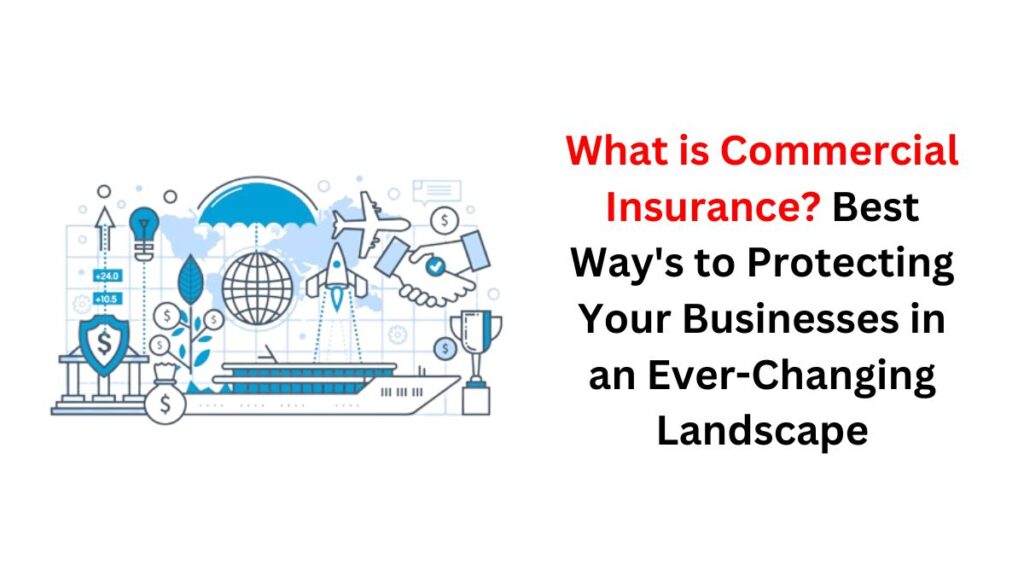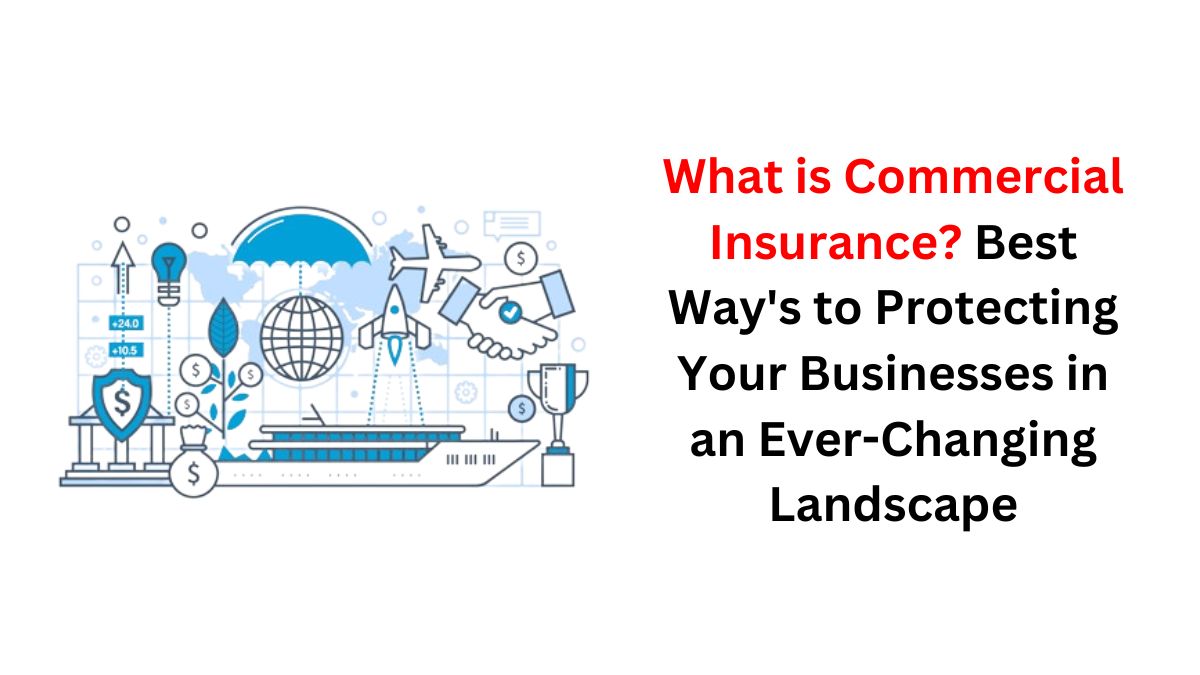In the dynamic and unpredictable world of business, uncertainties are inevitable. From natural disasters to unforeseen lawsuits, companies face a myriad of risks that could potentially jeopardize their operations and financial stability. This is where commercial insurance steps in, offering a safety net to shield businesses from potential losses and liabilities.

Introduction to Commercial Insurance
Commercial insurance, also known as business insurance, refers to a broad category of insurance policies designed to protect businesses against various risks and liabilities. It provides coverage for property damage, liability claims, employee injuries, and other unforeseen events that could disrupt business operations or result in financial losses.
Whether you’re a small startup or a multinational corporation, having adequate commercial insurance coverage is essential for safeguarding your assets and ensuring long-term sustainability.
Types of Commercial Insurance Policies
Property Insurance
Property insurance protects businesses against damage or loss of physical assets such as buildings, equipment, inventory, and furniture due to fire, theft, vandalism, or other covered perils.
Liability Insurance
Liability insurance covers legal expenses and damages arising from third-party claims of bodily injury, property damage, or advertising injury. It includes general liability, professional liability (errors and omissions), and product liability insurance.
Business Interruption Insurance
Business interruption insurance compensates businesses for lost income and ongoing expenses when operations are temporarily suspended due to covered perils such as fire, natural disasters, or civil disturbances.
Workers’ Compensation Insurance
Workers’ compensation insurance provides medical benefits and wage replacement to employees who suffer work-related injuries or illnesses. It also protects employers from lawsuits filed by injured workers.
Commercial Auto Insurance
Commercial auto insurance covers vehicles used for business purposes against accidents, theft, vandalism, and other risks. It includes liability, collision, comprehensive, and uninsured/underinsured motorist coverage.
Cyber Insurance
Cyber insurance helps businesses mitigate financial losses and liabilities resulting from data breaches, cyberattacks, and other cyber incidents. It covers expenses related to data recovery, notification costs, legal fees, and regulatory fines.
Factors Affecting Commercial Insurance Premiums
The cost of commercial insurance premiums varies depending on several factors, including:
- Industry Type: Certain industries, such as construction and healthcare, are considered higher risk and may face higher premiums.
- Business Size: Larger businesses with more assets and employees typically pay higher premiums than smaller enterprises.
- Location: Geographic location plays a significant role in determining insurance rates, as areas prone to natural disasters or high crime rates may face higher premiums.
- Claims History: Businesses with a history of frequent claims or losses are viewed as higher risk and may face higher premiums.
- Coverage Limits: The extent of coverage and policy limits chosen by the insured also impact premium rates.
Benefits of Commercial Insurance
Financial Protection
Commercial insurance provides financial protection against unforeseen events that could result in significant losses or liabilities. It allows businesses to recover and rebuild without bearing the full financial burden of damages or legal claims.
Legal Compliance
Many states and industries require businesses to carry certain types of insurance coverage, such as workers’ compensation or commercial auto insurance, to comply with legal regulations and protect employees and the public.
Business Continuity
By providing coverage for property damage, business interruption, and other risks, commercial insurance helps businesses maintain continuity of operations even in the face of adversity. It ensures that critical functions can resume promptly following a covered loss.
Peace of Mind
Knowing that your business is adequately protected against potential risks and liabilities can give you peace of mind and confidence to focus on running and growing your business without constantly worrying about the unknown.
How to Choose the Right Commercial Insurance
Selecting the right commercial insurance coverage requires careful consideration of your business’s unique needs and risks. Here are some steps to help you choose the most suitable insurance policy:
Assessing Business Needs
Identify potential risks and liabilities specific to your industry and business operations. Consider factors such as the value of your assets, number of employees, nature of your business activities, and regulatory requirements.
Comparing Policies and Quotes
Shop around and compare quotes from multiple insurance providers to find the best coverage options at competitive rates. Pay attention to coverage limits, deductibles, exclusions, and endorsements offered by each policy.
Evaluating Insurer Reputation and Financial Stability
Choose a reputable insurance company with a strong track record of customer service and claims handling. Check the insurer’s financial strength ratings from independent rating agencies to ensure they can fulfill their obligations in the event of a claim.
Common Mistakes to Avoid When Purchasing Commercial Insurance
Underestimating Coverage Needs
Avoid the temptation to skimp on coverage or select the cheapest policy available. Assess your business’s risks comprehensively and choose coverage limits that adequately protect your assets and liabilities.
Ignoring Policy Exclusions
Read the policy terms and conditions carefully to understand what is covered and what is excluded. Pay attention to specific exclusions or limitations that may leave your business vulnerable to certain risks.
Failing to Update Coverage Regularly
Review your insurance coverage annually and whenever significant changes occur in your business operations, such as expansion, relocation, or introduction of new products or services. Update your policy to reflect
Must Read:-
- What is Car insurance lawyer? Best Way’s to Essential Guide to Car Accident Lawyers in 2024
- Liability Insurance: Comprehensive Coverage for Peace of Mind
Q1. What is commercial insurance?
Q2. Why do businesses need commercial insurance?
Q3. What types of businesses can benefit from commercial insurance?
Q4. How do I choose the right commercial insurance policy for my business?
Conclusion
Commercial insurance is an indispensable asset for businesses of all sizes and industries, providing essential protection against a wide range of risks and liabilities. From property damage to legal claims and business interruptions, the coverage offered by commercial insurance policies ensures that businesses can weather unexpected storms and continue operating with confidence. By investing in comprehensive commercial insurance coverage, businesses can safeguard their assets, protect their employees, and maintain continuity of operations, ultimately fostering long-term stability and success.
